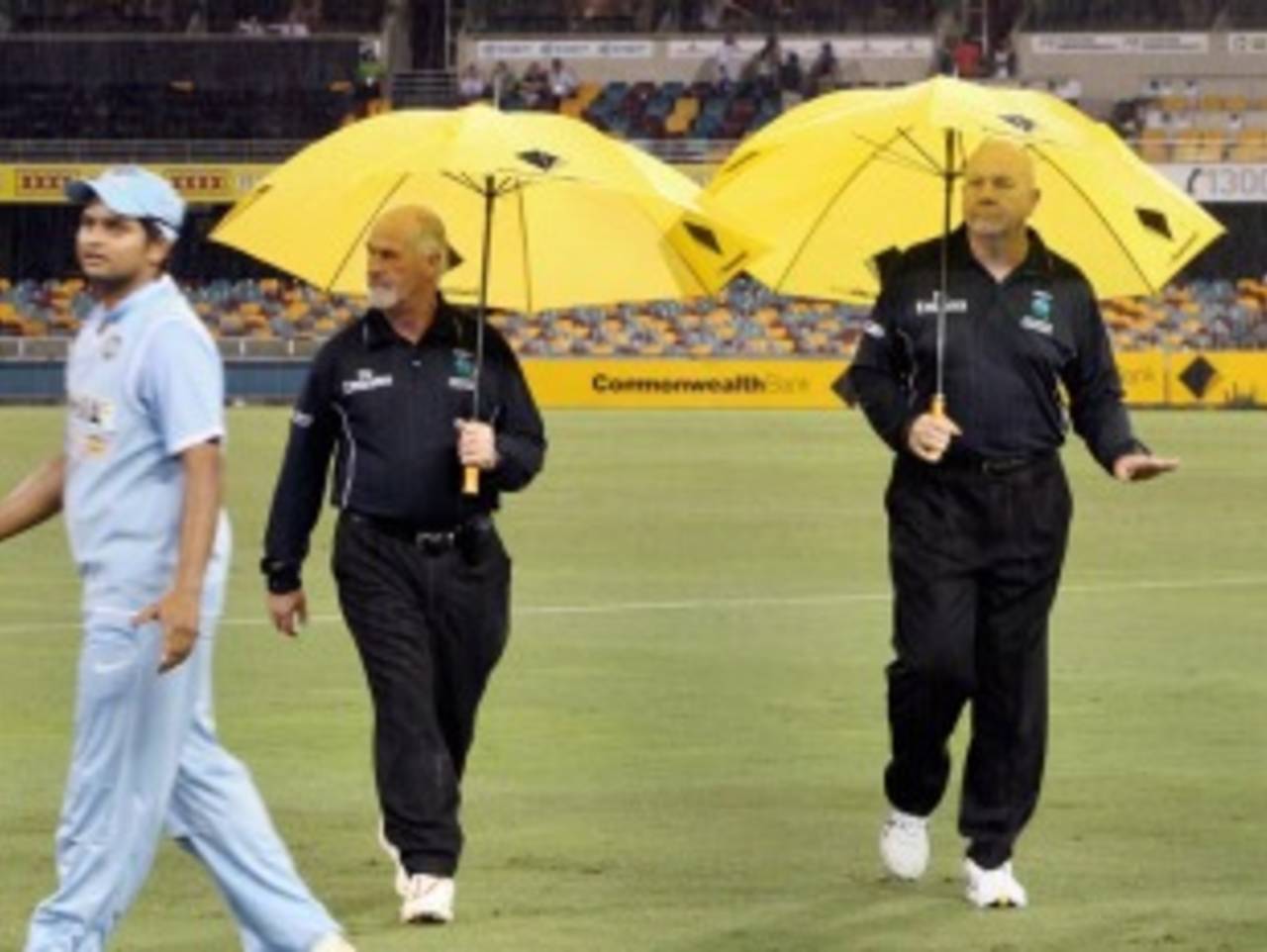If it rains…
In Brisbane, precipitation changes everything
Christian Ryan
25-Feb-2013

Brisbane is hail, electrical storms and flash floods • AFP
The Go-Betweens were the Robbie Kerr of pop music. They were clever-seeming Brisbane boys, at once shimmering and wry, the planet theirs for the conquering. The planet, alas, was at that moment in thrall to more workmanlike sorts: Boons and Marshes, Huey Lewises and Phil Collinses. And so The Go-Betweens, like Robbie Kerr, never quite made it to household name status even in Woolloongabba. Their fifth record, called Tallulah, opened with a violin and a man’s voice, slightly parched, and these words: “It rains for days so you stay inside and lock your door.”
They sang of death, heartache and Kerouac; of fur traders living in exile and steel-haired sisters sleeping in feminist bookstores. Yet this least Brisbane-like of bands was the most Brisbane-like of bands. For if songwriters Grant McLennan and Robert Forster had one preoccupation, verging on obsession, it was rain. Rain “surrenders to the town”. Rain hits “the roof with the sound of a finished kiss”. Rain is an ex-lover’s handwriting – “like mud in the September rain” – that keeps drip-dripping in your skull. Listen to the first half a dozen Go-Betweens records. The one constant is rain. It swoops in and it vanishes, then it’s back again, a light sprinkling of dust over every shift in mood and circumstance.
A recurring fascination is this: how once the rain has tumbled, things are never quite as they were. Cricketers understand this well. It rains. Everybody scatters. The rain stops. Everyone returns. And the ball does things it most definitely was not doing before. When he was 28, Forster was howling: “When will change come, just like spring rain?” He is 53 now, and the thought tantalises him still, his most recent solo album beginning with one frozen guitar strum and one calm assertion of a lesson learned: “If it rains, now we’ll change…”
If rain can do this to Brisbane locals – be some mysterious life-shaping force that grips and shakes you and never lets go its hold on you – how hauntingly must it implant itself in the heads of 11 English cricketers? Where they come from, “monsoon” is an exotic-sounding word in a thesaurus. And Brisbane is more than rain. Brisbane is extremes. It is hail, it is electrical storms, it is flash flooding. It is heat so sticky that the sweat glues your flannels to your spinal cord. The English players may this week sample some or all of these weather phenomena. They can say none of it matters anyhow. But as long as cricket is played outdoors, it matters. Cricket teams these days consist of more support staff than players. Nature is one of the last uncontrollables.
The witty and astute Daily Mail journalist Lawrence Booth stepped off the plane from Heathrow on Monday morning, peered out his hotel window, and immediately wrote home: “Hammering it down at 6.30am here in Brisbane. I want my money back!” In doing so, he joined a long and distinguished line of English cricket hacks to have the self-assurance knocked out of them by Brisbane. The poet Alan Ross, visiting in 1954–55, shot one look at the Gabba and quailed at the sight. “The pavilion,” he observed, “has roughly the dignity of a lavatory, and the members’ stands, separated by wire netting like hen-runs, are ugly to look at and uncomfortable to sit in. Beyond them, rows of dingy corrugated-iron shacks emphasise a kind of prisoner-of-war atmosphere.”
Half a century on, the ground is a stadium and looks nothing like it once did. Seen through English eyes it is the same hellhole of discomfort, Scyld Berry’s words in the Telegraph this week almost paraphrasing Ross’s nightmare vision: “England’s team bus on Thursday morning will drive to the ground past armed cops and bottle shops fortified like jails… The Gabba has no pavilion, no trees, no bell to tinkle five minutes before the start, nothing soft and English, [nothing] but cavernous, windowless, functional dressing-rooms at the bottom of a concrete stand, and a buzzer to startle you into action and on to the field.”
Let’s be real: the dear old Brisbane Cricket Ground, its bending fig trees but a memory, is nothing like so ghastly as all that. But once Brisbane gets in your head, it colours and blackens what you see. And if the wiseacres of the press box are so easily knocked off balance, what of the barely grown-up young men in the middle? Everything must feel otherworldly.
Matthew Hayden, another Brisbane local, thinks the Gabba is Australia’s biggest advantage. And here come three words you are guaranteed never to read again in the lifetime of this blog: Haydos is right. It is a small advantage, but when the differences between two sides are equally tiny, small advantages can swell and become decisive. A cricket match is never simply 11 against 11 and may the best 11 win. For a cricket match is not played on paper. Especially not this week’s cricket match. Not at this location.
Softer, more English settings lie ahead. As for Brisbane, tomorrow, a few showers are forecast. Eleven English cricketers might not be too terribly unhappy if the showers are frequent rather than few, and if it then rains for days, so they can stay inside and lock the door.
Christian Ryan is a writer based in Melbourne. He is the author of Golden Boy: Kim Hughes and the Bad Old Days of Australian Cricket and, most recently Australia: Story of a Cricket Country